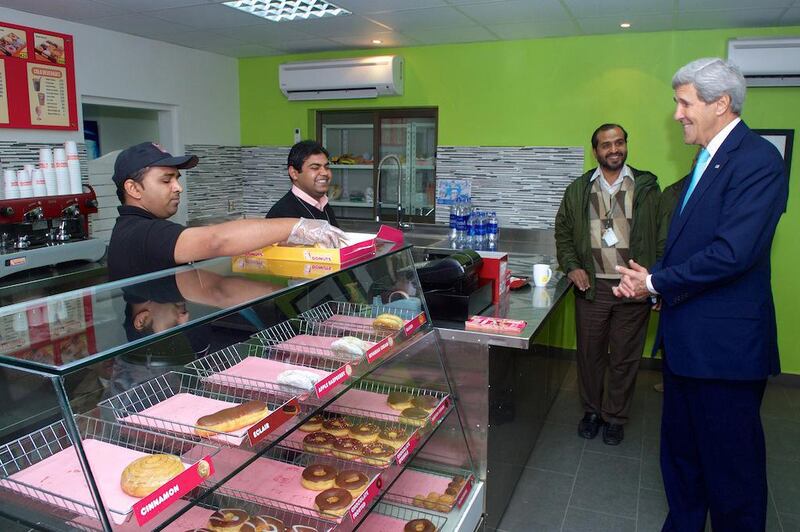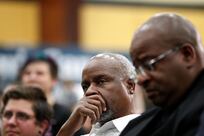John Kerry’s visit to South Asia last week revealed the recent dramatic transformation in America’s foreign policy. While there is persistent criticism among sections of the Indian chattering classes that Washington fails to take New Delhi’s concerns seriously, Mr Kerry’s visit was an indication that US policy has managed to decouple India and Pakistan.
While there continue to be differences between Delhi and Washington, the election of Narendra Modi has given the US another opportunity to reformulate its South Asia policy. Mr Kerry has made it clear that the US intends to make full use of this chance. He will be followed to India by president Obama for India’s Republic Day celebrations early next week.
Speaking at the Gujarat investment summit, Mr Kerry made a forceful case for stronger economic ties, with special focus on areas such as trade policy, energy, telecommunications, climate change and intellectual property.
“We can do more together and we must do more together and we have to do it faster,” he said.
Mr Kerry also underscored the opportunity for US firms to help Mr Modi achieve his economic goals. This would need reform of the Indian business environment to make foreign investment easier. Bilateral trade stands at $30 billion now, and Washington shares Modi’s goal to increase annual trade five-fold.
Defence cooperation is another major area for cooperation. Mr Obama and Mr Modi have already renewed the 2005 New Framework on Defence and expanded its scope. Two major projects, involving unmanned aerial vehicles and C-130 military transport aircraft systems, are likely to be finalised during Mr Obama’s visit.
Regional security cooperation also seems to be gaining momentum, with India and the US keen to ensure stability in the South China Sea and to share information on the Middle East.
New reports suggest that India has decided to join the fight against the ISIL. If so, this would indicate that New Delhi’s worldview has moved towards that of Washington.
But just as Indo-US ties are widening, Pakistan’s role in the US foreign policy matrix is becoming more narrow. Islamabad has been trying to shore up its antiterrorism credentials and during Mr Kerry’s unannounced visit to Pakistan last week, he held talks with prime minister Nawaz Sharif and chief of army staff general Raheel Sharif to encourage Pakistan to fight militants in the restive tribal regions. During the visit, seven prisoners were hanged in a move designed to underline the country’s resolve to fight Islamist militants.
Mr Kerry sought to ensure that the military is targeting all of Pakistan’s militant groups, including the Haqqani network, Lashkar-i-Taiba, the Afghan Taliban and others that pose a threat to regional stability and to American interests.
Some reports say that Mr Sharif plans to ban the Haqqani network and Jamaat-ud-Dawa, which the US and the UN say is a front for Lashkar-i-Taiba. This is seen as a paradigm shift in policy.
Washington has said that it plans to provide $250 million [Dh918m] in emergency aid to Pakistan to help resettle and sustain civilians displaced by the military’s campaign against the militants.
But Mr Kerry made it absolutely clear that the US has no intention of being a mediator between India and Pakistan. Instead he only said that the US is “deeply concerned” by the recent spate of increased violence along the working boundary and the line of control in Kashmir, and that it was “in the interests of Pakistan and India to move this relationship forward”.
It is obvious the US is changing its priorities in South Asia and that engagement with India is likely to emerge as the centrepiece of its new policy, while Pakistan will increasingly be relegated to the margins unless its gets its house in order.
That message, delivered by Mr Kerry last week, is sure to be amplified by Mr Obama next week.
Harsh V Pant is a professor of International Relations at King’s College London





